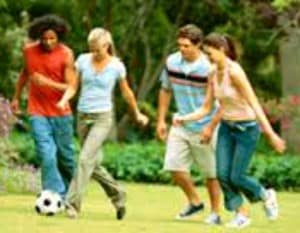
For the study, the researchers tested the blood pressure, blood sugar, and fat metabolism of a group of adolescents, taking measurements regularly over an eight-hour period. During the eight hours of the study, the adolescents ate a fatty meal for breakfast or lunch. The adolescents were asked to perform four bouts or either high-intensity or moderate-intensity exercise throughout the study. Despite the intensity of the exercise, adolescents performing high- or moderate-intensity exercise performed the same amount of work overall.
High-intensity exercise had the best health outcomes for adolescents. Adolescents who performed high-intensity exercise had improved blood pressure, blood sugar levels, and fat metabolism after consuming a fatty meal. Adolescents who performed moderate-intensity exercise did not see the same benefits.
“Children and adolescents tend to perform brief bouts of exercise. This study shows that the intensity of this pattern of exercise is important, with high-intensity providing superior health benefits than moderate-intensity exercise,” stated Dr. Alan Barker of the Children’s Health and Exercise Research Center, Sport and Health Sciences at the University of Exeter.
Two minutes of high-intensity exercise, four times per day could improve health outcomes for adolescents. This study contributes to mounting evidence that short bursts of high-intensity exercise may be better for cardiovascular health than moderate-intensity exercise.
This research is published in the journal Metabolism: Clinical and Experimental.
Previous news in exercise:



 © 2025 Unyte Health US Inc.
© 2025 Unyte Health US Inc.